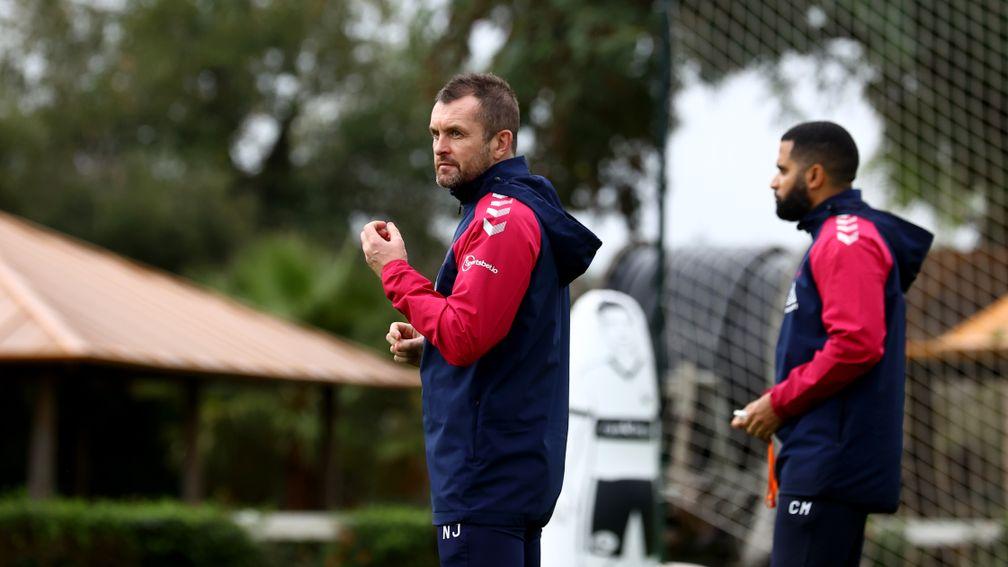Will new managers help Leeds and Southampton avoid Premier League relegation?
Soccer Boffin Kevin Pullein offers his weekly dose of betting wisdom

Southampton sacked manager Ralph Hasenhuttl when they were 18th in the Premier League. They are now 20th and have sacked his replacement Nathan Jones. This is unusual. Clubs who change manager climb up the table more often than they drop down.
Owners sack managers because of bad results. If a team have been getting bad results it is usually because they have been playing badly but also because on at least some occasions they have been unlucky. They may or may not carry on playing badly but they will not always be unlucky.
So teams who have been getting bad results tend to get better results in future, whether they change their manager or not. There is research in football and other sports showing that on average the consequences of changing manager are no different from the consequences of not changing manager.
But clubs do fire their managers. Seven Premier League clubs have swapped already this season, one of them twice. Why?
Owners are leaders, and leaders like to see themselves – and to be seen by others – as decisive. If a relegation-threatened club sack their manager and still go down the owners can say: “At least we took action, we did what we could.” If they do not sack their manager and the team go down they will have to say to themselves, and others will say to them: “You should have done something.”
So clubs shuffle managers. Between Southampton sacking Hasenhuttl and sacking Jones, Leeds sacked Jesse Marsch. They were and are 17th, one place above the relegation line. The owners of Leeds once and the owners of Southampton twice took action. Will things turn out well for them in the end?
I studied Premier League managerial sackings during the last 25 completed seasons, 1997-98 to 2021-22. If a club sacked more than one manager during a season I examined only the first. This was to keep things simple. Otherwise I would not have been sure what to compare with what. It does mean that I did not include developments like the ones at Southampton. So there are gaps.
Overall 56 per cent of clubs who changed manager finished the season in a higher position, 22 per cent in the same position and 22 per cent in a lower position. Between two and three times as many went up as went down.
Teams who sacked a manager averaged 1.0 points per game before and 1.2 points per game after. There was not an identical proportional increase for all teams, though. Generally speaking, the worse a team’s results before their manager was sacked the bigger the proportional improvement after.
Southampton this season gained only 0.4 points per game under Jones. Teams with the same or a worse record in previous seasons when they sacked their manager averaged almost 1.0 points per game after.
I repeat, Jones was Southampton’s second manager this season. Perhaps surprisingly, it does not make much difference whether I project from his record or combine it with Hasenhuttl’s record. Either way, history suggests Southampton over their remaining 16 games might get 16 points. They have 15 already, so they would finish with 31.
Leeds this season were on 0.9 points per game when they sacked Marsch. They still are. Teams at that level in previous seasons when they fired a manager averaged 1.2 points per game after. If Leeds accumulate at that rate over their last 16 games they will gain another 19 points. They have 19 now, so they would reach 38.
They could get more or fewer. So could Southampton. Those numbers are what mathematicians call expectations. They are figures inside a range of possibilities.
On Saturday, Leeds play at Everton, who are one point and one place below them, just under the relegation line. Obviously what happens at Goodison Park could have a meaningful impact on whether Leeds finish higher. Everton have already changed their manager, replacing Frank Lampard with Sean Dyche.
Overall, as I say, the consequences of changing manager are no different from the consequences of not changing manager. There could not be a difference. It would only happen if the managers coming in were better than the managers going out. And they are not. They are not because they are usually the same people at different times. Most newly appointed Premier League managers have managed another club before, and not infrequently in the Premier League.
Sign up to emails from Racing Post Sport and get all the latest news and tips
Today's top sports betting stories
Follow us on Twitter @racingpostsport
Published on inOpinion
Last updated
- James Milton: Why Jose Mourinho should stop ranting about referees and find his inner peace
- Mark Langdon: Best bets for every Champions League last-16 tie
- Premier League pointers – our top team unearth their punting gems from the midweek action
- Simon Giles: Manchester United boss Amorim targets slow-burning success rather than a quick fix
- Tom Clark: Champions Trophy proving its worth again despite more ICC cowardice
- James Milton: Why Jose Mourinho should stop ranting about referees and find his inner peace
- Mark Langdon: Best bets for every Champions League last-16 tie
- Premier League pointers – our top team unearth their punting gems from the midweek action
- Simon Giles: Manchester United boss Amorim targets slow-burning success rather than a quick fix
- Tom Clark: Champions Trophy proving its worth again despite more ICC cowardice